counterfeit
Latest

AI spots art fakes by examining a single brushstroke
Attempts at art forgeries run from the laughable (remember Monkey Jesus?) to the exquisite (this ambiguous Baroque masterpiece nearly cost a gallery €120 million last year), and traditionally the art world has had to rely on expert knowledge and supporting documentation to weed out the real from the fake. But now researchers claim AI is able to identify forgeries simply by looking at the brushstrokes used to compose a piece.

Nike will team up with Amazon to fight fake kicks
Amazon has realized that counterfeit products posing as the real deal annoys consumers and dilutes trust in its marketplace. That's likely why it came down harshly on vendors last fall, requiring a hefty $1,000 to $1,500 fee and tons of paperwork to sell products from prime brands like Samsung, Adidas, Hasbro. But that was a stopgap move: Amazon has allegedly been working on a registry of approved vendors to assure consumers that the merch they buy is the real deal, and Nike might be the first brand to get this thorough vetting.
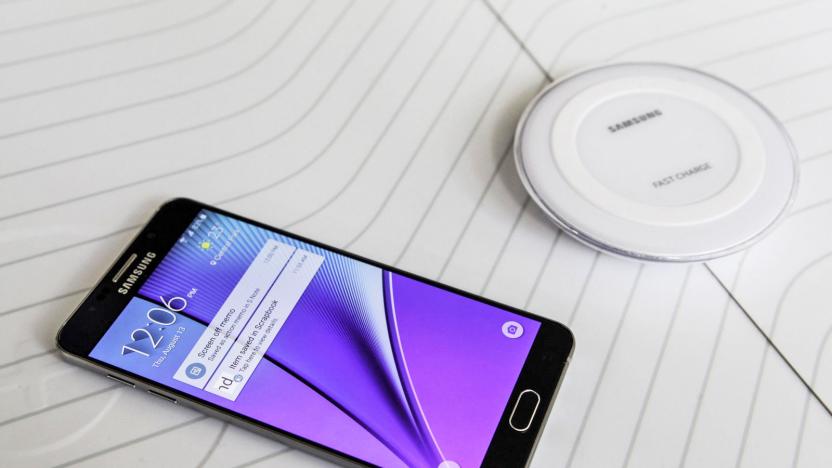
Secure wireless charging stops pads from frying your phone
It's not just dodgy wired phone chargers that you have to worry about -- a poorly-made wireless charging pad could easily toast your phone. But how do you prevent that from happening when there are no cables or ports involved? MIT has an idea. Its researchers have unveiled a security chip that would prevent a wireless charger from topping up your phone unless it authenticates through a cryptographic handshake. It revolves around a smaller, more efficient charging circuit where there's a main coil (for the actual charging) and a secondary coil that can produce a strong magnetic field. If your phone and the charger don't exchange the right public cryptographic keys, that secondary coil will "scramble" the primary coil by changing its frequency.
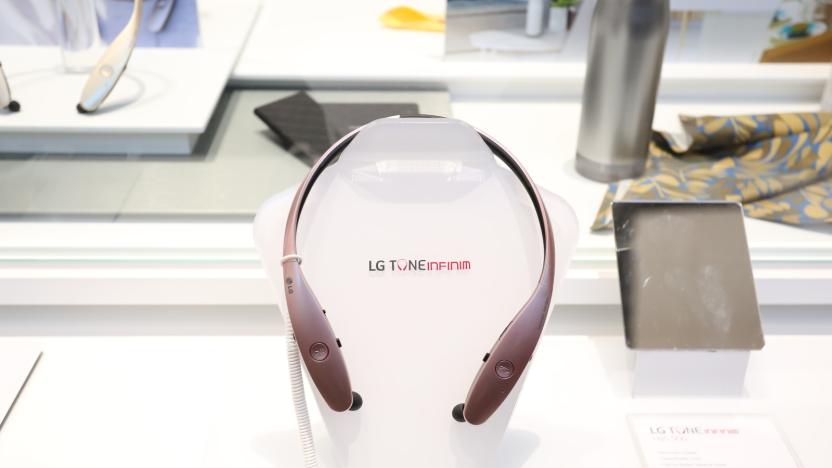
LG wins $168 million lawsuit against knockoff headphone makers
Last year LG filed a $200 million lawsuit against companies producing counterfeit versions of its wraparound Tone headsets. Now, the presiding judge has spoken. While the amount the company was awarded wasn't as high as it asked for, $168 million for damages plus court costs and interest, isn't anything to sneeze at.

Google took down nearly 2 billion 'bad ads' in 2016
Sketchy advertisers are all over the internet, and Google is doing everything it can to stop them from scamming users. According to a recent report on the matter, the search giant removed 1.7 billion ads from its advertising platform in 2016, more than double the amount compared to the year prior. The online housekeeping included 68 million ads for illegal pharmaceutical products, 80 million for content that misled and deceived consumers, as well as 112 million others that used trick-to-click methods.

Why do Instagram and Twitter want me to buy fake Yeezys?
It's not rare for me to come across ads for counterfeit goods, particularly as I'm browsing Instagram or Twitter. And although I don't have a Facebook account, I live with someone who does and know that's an issue there as well. Targeted advertising, the kind that knows exactly what brand of sneakers and streetwear I'm into, is the least of my worries here. My problem is the fact that Twitter and Facebook (which owns Instagram) are approving sponsored posts from retailers selling counterfeits. I know better, but there are many who may fall victim to these sorts of scams.

Run-DMC sues Amazon, Walmart over online counterfeits
It's not just tech giants like Apple that are taking online stores to task for allowing counterfeit goods on their virtual shelves. Run-DMC is suing Amazon, Walmart (including Jet.com) and partners for selling bogus shirts, hats and other goods that violate the legendary group's trademark. The internet retailers are allegedly "trading on the goodwill" of Run-DMC by either allowing third parties to sell counterfeits or, in Amazon's case, supposedly selling the fakes directly.
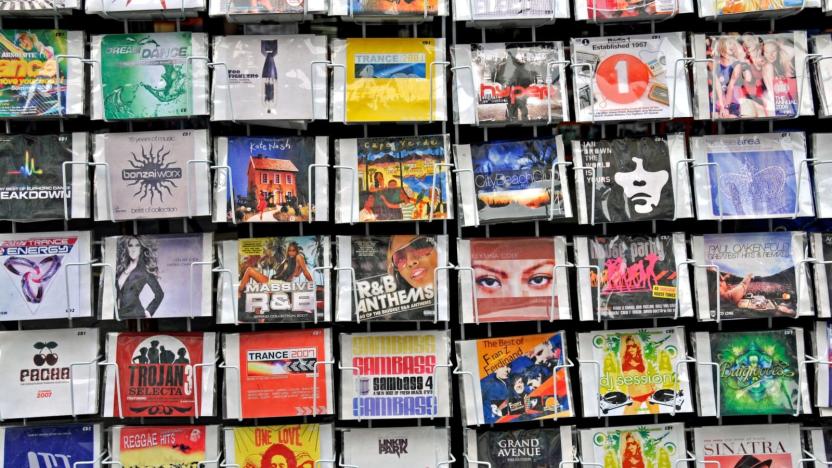
Pirates swamp online stores with counterfeit music CDs
It can be easy to forget that CDs still represent a significant chunk of the music industry's revenue in the streaming era, but pirates certainly haven't forgotten. The Wall Street Journal has learned that counterfeit CDs are a serious problem at Amazon and other online stores. Bootleggers (frequently from China) produce discs that are increasingly similar to the real deal and sell them for slightly less than legitimate copies, making them look like bargains instead of obvious frauds. And they aren't always coming from obscure suppliers, either. In an RIAA investigation, Amazon fulfilled 18 out of 44 CD orders identified as counterfeit.
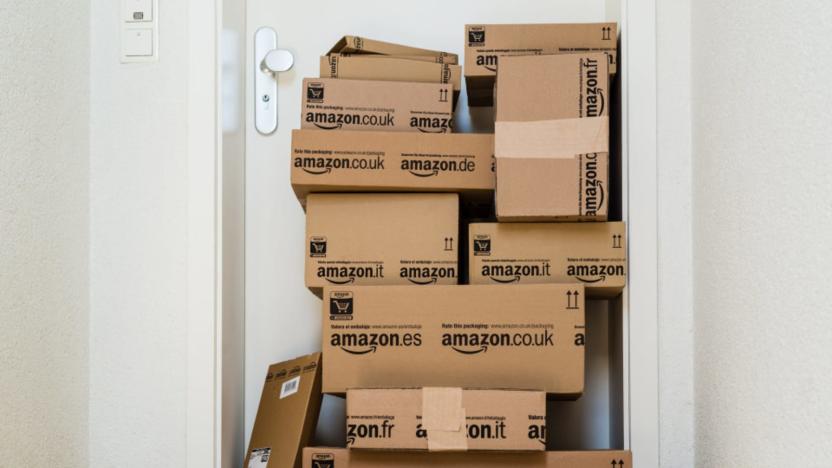
Amazon is cracking down on counterfeit goods
Amazon is cracking down on more than just counterfeit reviews -- the e-commerce juggernaut is waging a war against fugazi products, too. In order to sell Adidas, Asics, Hasbro, Nike and Samsung products, Amazon is asking for a $1,000 to $1,500 fee and a surfeit of paperwork according to CNBC. One of the publication's anonymous sources provided a screenshot of the submission process for Samsung. The requirements? An invoice no more than 90 days old showing the purchase of at least 30 items, with at least five different products across the invoices.
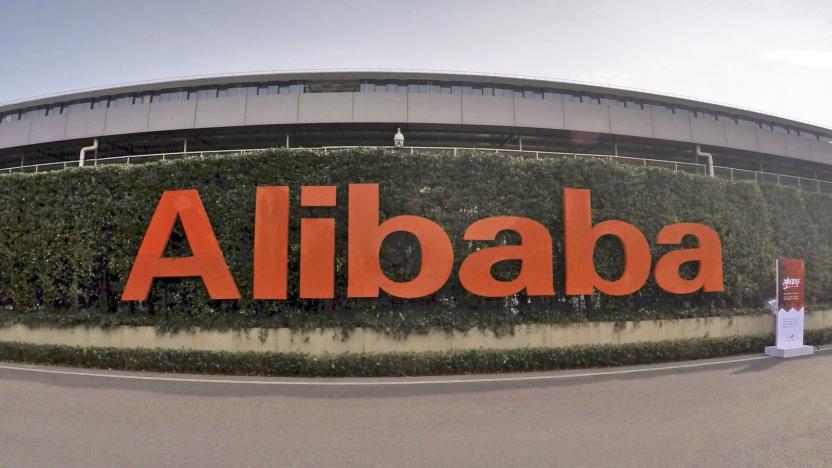
Alibaba announces new system to track and remove fake goods
If you've ever shopped at Alibaba, you know to tread carefully: the online marketplace has long had a problem with merchants peddling counterfeit goods. It's given the site a bad reputation, creating tension between Alibaba and major brands. Today, the company announced a new program designed to smooth things out and help companies identify and remove fake products from Alibaba's marketplace.

Photonic Swiss watch engraving might keep counterfeiters at bay
Counterfeit jewelry is a big business. Sometimes the fakes are so convincing that it can be nearly impossible to tell if that Rolex you're eying is the real deal unless you have special equipment or an extremely trained eye. That's something the folks behind DNAwatch want to address. The team has developed a method for imprinting the crystal on Swiss-made watches with a watermark that's invisible to the naked eye, but shows up under ultraviolet lighting.

Alibaba founder: Fake goods can be better than the real deal
If you use a contract factory in China to produce your goods, don't be surprised if high-quality fakes pop up online. That's the feeling of Alibaba founder and executive chairman Jack Ma, who stands accused of effectively endorsing counterfeit goods while speaking at an investor event. The Wall Street Journal quotes the executive as saying that "the fake products today are of better quality and better price than the real names." It's a big issue for Alibaba, since its consumer-facing retail portals have something of a reputation for being the place to go when you want a knock-off device.

US Customs seized $35,000 worth of counterfeit Fitbits
Being one of the most identifiable names in a technology sector means that people will always want in on your turf. It's a problem that Fitbit knows all too well, since it's now dealing not just with generic clones of its devices, but counterfeit models as well. US Customs and Border Protection has revealed that it seized $35,000 worth of fake Fitbits as they arrived into Philadelphia on a shipment from Hong Kong. The devices were nabbed on January 4th, putting the stops on at least 350 people's new year's resolutions to slim down.

Counterfeiters already have fake 'BTTF' Nikes with power laces
Nike won't have its Back to the Future 2 kicks on shelves until next year, but it looks like the folks who make their money selling knockoffs aren't waiting around. Since Nike announced the Mags with power laces will be a very limited edition available only via auction, we can expect a healthy market for fakes. Kicks On Fire points out this Instagram video by fake_education -- an account that generally points out ways to tell real shoes from their unauthorized twins -- showing a power lacing system already integrated with a pair of knockoff Mags. Of course we're sure you would never stoop so low as to intentionally buy fakes, but when Marty McFly's futuristic shoes start to surface in suspicious quantities and prices, remember this video.

Department of Justice plans to crack down on counterfeits sold online
These days, people are resorting to the internet for most of their shopping. Who can blame them; the experience is far more convenient, and often cheaper, than going to traditional brick-and-mortar retail stores. One of the problems with this, however, is how easy it is to find and buy counterfeit goods online, and the US Department of Justice wants to put an end to that. Attorney General Loretta E. Lynch has announced a plan to fight intellectual property crimes in the country, which includes a grant funding of 3.2 million dollars for local and state law enforcement agencies. The idea behind the strategy, led by the FBI, is to work with third-party marketplaces (such as eBay or Amazon) to make sure they have "the right analytical tools and techniques to combat intellectual property concerns on their websites."

Alibaba hopes visual codes will fight counterfeit goods
As you may have heard, Alibaba has a problem with counterfeit goods among its merchants -- you may not know if that Gucci bag is fake until it's too late. The Chinese online shopping giant may have a way to fight these bogus wares, though. It's implementing Visualead's Dotless Visual Code to help you verify your purchases as soon as you get them home. All you do is scan the QR-like symbol using Alibaba's Taobao app, and it'll tell you if you bought the real deal. These codes only work once and require specially developed scanning software, so scammers can't simply rehash codes or write apps that claim their products are legit.

Luxury brands sue Chinese online shopping giant for allowing fakes
It's no secret that luxury designers see Chinese online stores as a haven for fake goods, but they're now taking concerted action to shut down these less-than-official outlets. Kering, the parent company behind brands like Gucci and Yves Saint Laurent, is suing shopping giant Alibaba for allegedly letting counterfeiters sell their wares in the US and elsewhere. The company did nothing to shut these operations down even when told what was going on, according to the complaint. Kering had tried suing Alibaba last July, but it dropped the case in hopes of hashing out a deal -- clearly, those negotiations didn't get very far.

Etsy's counterfeit problem is getting worse
News of Etsy's battle against sellers pedaling knockoff goods on its site isn't a recent revelation, but an analyst report this week details the extent of the problem. Investment firm Wedbush says that up to 2 million items listed on the marketplace may be counterfeit or infringe on either a copyright or trademark -- items like these. That's around 5 percent of all goods promoted there. It's not just fashion and jewelery brands, either: products with pro sports, cartoon and comic book artwork abound on Etsy as well. The company recently went public, and as you might expect, its stock fell in response to the report. What's more, a class action lawsuit was filed against the site for making "false and misleading statements" about the counterfeit issue. Etsy took aim at questionable merchandise in the past, banning the sale of Washington Redskins items back in September. However, if it wants to continue being the go-to place for handmade goods, it'll need to do some spring cleaning. [Image credit: Victor J. Blue/Bloomberg via Getty Images]

NEC wants you to spot counterfeits using your phone's camera
Want to find out whether or not something at the street market is a fake? In the future, you might only have to snap a photo with your smartphone. NEC has developed "object fingerprint" technology that compares the tiniest details of an object (such as the metal or plastic grain) with images in a cloud database; if something doesn't look quite right in that cut-rate handbag, you'll know right away. It's useful beyond piracy, too. You could trace the origins of legitimate items, or make sure that repair crews are using the right parts.
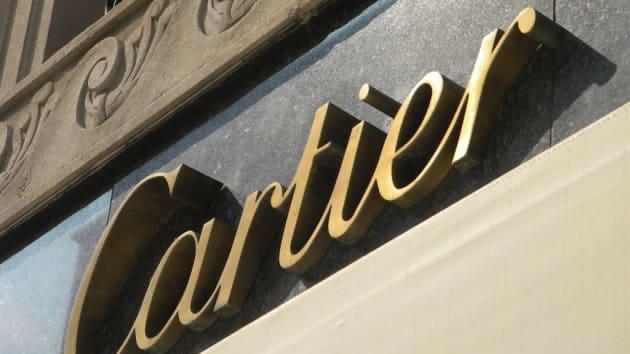
High Court forces UK ISPs to block websites selling fake luxury goods
Her Majesty's High Court of Justice has served as the stage for several high-profile cases in recent years that've resulted in UK ISPs being forced to block certain nefarious websites. Typically, these have involved entertainment giants that want to make it harder for illegal file-sharing sites like the infamous Pirate Bay to connect with their audiences. But now, ISPs have been given a new target: websites selling counterfeit goods. Said to be the first ruling of its kind in Europe, the High Court has today ordered that Sky, BT, Virgin, EE and TalkTalk -- which collectively provide 95 percent of all UK broadband -- must block a handful of websites that sell fake versions of products made by the likes of luxury brands Cartier and Mont Blanc.









